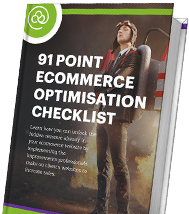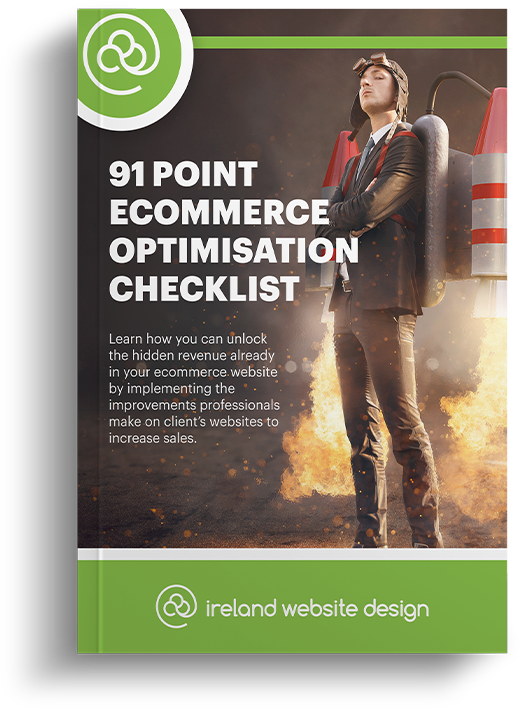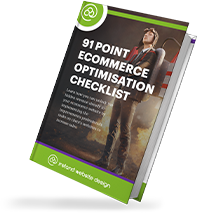It’s safe to say that the Irish retail industry has experienced some ups and downs in recent years. Those who hadn’t yet fully embraced eCommerce were thrown in at the deep end with the escalation of Covid-19, and economic uncertainty has further overshadowed many of the development phases retailers had planned.
Despite the disruption, eCommerce has managed to experience a significant boost in growth due to online shopping being the only option for many during periods of isolation and lockdown. With the continuous advancement of technology and a global market that many are eager to continue exploring, eCommerce seems to have fared well overall.
With the release of the latest European Ecommerce Report, eCommerce retailers might have further cause for celebration. The 2022 report states that B2C eCommerce turnover jumped from €2.86 billion in 2017 to €6.15 billion in 2021 and is set to grow further in 2022. As many online retailers now consider themselves to be in prime position to fight any further challenges head-on, are they at risk of becoming complacent?
Having read the latest European Ecommerce Report in its entirety, we’ve put together some points for Irish retailers to keep in mind as eCommerce enters its next growth phase.
If eCommerce is booming in Europe and my business has survived the hardships so far, I can relax a little, right?
According to the European Ecommerce Report for 2022, Western Europe still holds the largest share of total turnover in eCommerce sales, boasting an impressive 63%. If Western Europe is nailing it this much, shouldn’t Irish retailers just keep doing what they’re doing?
Despite having a lower share of total eCommerce turnover, Eastern Europe continues to experience a higher rate of growth than Western Europe. While some will argue that this merely indicates that eCommerce has already reached a highly developed state in certain parts of Europe, the reality is that eCommerce is still a new enough concept for there to be plenty of untapped opportunities left to exploit.
In a separate report by NielsenIQ, eCommerce penetration measured approximately 48% in the U.K. and France in late 2020, with Spain and Germany only seeing penetration rates of just over 20%. This shows that there are discrepancies in eCommerce performance across Europe. Still, with the way eCommerce is moving, these discrepancies will soon even out if industry leaders don’t identify new ways to stay ahead.
Those performing well in the eCommerce sector should view the data from European eCommerce reports positively, but also with extreme caution. The global market is still proving to be largely unpredictable, with several current affairs issues impacting movement. Your highly successful eCommerce business might be booming now, but don’t allow yourself to fall into a false sense of security. Global competitors who don’t buckle under the pressure of a tense market are likely to be your strongest competitors to date, so stay on your toes!
How is it looking for Irish retailers in terms of regulation at a domestic & EU level?
As part of the European Ecommerce Report for 2022, a focus was placed on the role of policy and regulation in stabilising eCommerce across Europe during Covid-19. Specific to Ireland, the Covid-19 Online Retail Scheme was commended for helping (and continuing to help!) businesses expand online and remain open despite being under severe strain.
With efforts also being made to simplify VAT regulation for cross-border sales, the report by Ecommerce Europe looks favourably on the treatment of online retailers through times of significant change. While there are still areas for improvement in areas such as VAT thresholds and compliance paperwork, the overall response from industry experts is that some positive decisions were made at the right time for eCommerce in Ireland.
One upcoming piece of legislation for Irish retailers to keep their eyes on is the EU proposal on ‘right to repair’. David Campbell, Director of Digital Business Ireland, says that this legislation will “certainly have an impact on the Irish eCommerce market, in light of the Irish government’s recent publication of the Circular Economy Bill”. Before any further movement on this bill, retailers are being advised to consider how their products can be made more durable and if repair services are viable.
While the inevitable implementation of further legislation might make it seem that significant power lies with the consumer, there is still opportunity for retailers to get ahead. Positive changes to business operations can improve customer loyalty and generate positive press, so our advice is never to wait until you’re told to implement something; showcase your ability to adapt and lead in advance.
What measures can I put in place to ensure my eCommerce business stays ahead?
While grants and schemes are always extremely beneficial to businesses during development phases or times of adversity, it’s worth considering how enterprises differ in their ability to optimise funding. Some business owners will focus only on the short-term benefits of additional aid, while others make clear plans to maintain momentum and avoid falling back into the trap of letting the market dictate their position.
In the report published by Ecommerce Europe, David Campbell notes that during the last year, “many businesses – particularly SMEs – have invested in their digital functionality and have sought to enhance their websites, digital marketing strategies, logistics, and online payment facilities”.
David’s point highlights how during times of difficulty, many businesses have understood the importance of safeguarding their business’s position wherever possible, including ensuring that all touchpoints and business functions are operating effectively. Businesses with well-developed and user-friendly digital channels will always have the advantage, regardless of the stage they’re at.
With so many schemes available to businesses in Ireland during the Covid-19 pandemic, previously offline retailers have now entered the digital sphere, with direct access to resources that serve to expedite their growth. Because of this, it’s normal for Irish online retailers to feel a little hot around the collar where competitors are concerned. Our advice is to look at the eCommerce operations belonging to ‘the new kids on the block’ and determine how they rank. Leverage any weaknesses you see and step up your game in terms of technology if there are new tools they’ve been advised to adopt.
In times of inevitable economic downturn, a longer history within eCommerce should give you an upper hand. Still, customer loyalty can slide if your touchpoints and business functions aren’t up to scratch. Make sure your website is on-point and keep up with the consumer trends influencing buying decisions.
Additional reading: Publications by Sitra are a good one to keep an eye on for EU market trends. We also like their discussions on Megatrends to help with future-proofing your business.
Is the shift towards sustainability here to stay?
Speaking of consumer trends, if you thought that the shift towards sustainability was just a passing phase, the European Ecommerce Report strongly suggests otherwise. As Duncan Graham, Managing Director of Retail Excellence Ireland highlights, “pre-loved as a category is expanding, with retailers such as Designer Exchange, Thriftify and Siopaella all operating physical and online stores”. The report observes that consumers are embracing the circular economy strategy with open arms, leaving retailers no choice but to adapt their operations to avoid backlash.
Online retailers are now being asked to consider their delivery options more carefully, as well as areas such as packaging and the possibility to have items repaired. While these are big asks for online retailers, especially SMEs or start-ups — it’s important to remember that operating as sustainably as possible is now a permanent fixture in modern-day eCommerce.
For retailers who know that their product or service isn’t the most environmentally friendly on the market, attempts to greenwash your operations will be met with severe consequences. Instead of pulling the wool over your customers’ eyes, give the power back to them by adding extras at the point of sale that allow your buyers to counteract negative feelings surrounding the purchase of your product or services.
Several retailers now offer the option to offset carbon emissions, select more carbon-neutral shipping options, or donate to relevant environmental charities — all at the point of sale. Whatever your business can do to be more sustainable, make use of green PR and ensure that your customers know exactly how your business is trying to be part of the solution, not the problem.
Don’t forget: Enterprise Ireland offers a selection of sustainability funds to help make changes to your business that contribute to a better future.
Is the ‘buy Irish’ sentiment going to stick around?
The European Ecommerce reports that in 2021, 88% of internet users in Ireland bought goods or services online, a significant jump from 64% in 2017. With the Covid-19 pandemic pushing more people into online shopping, competition also became stiffer.
Consumers now have easy access to other markets. With Asian sellers such as AliExpress and Shein drawing significant attention, it’s been a worrying time for Irish retailers trying to compete with consumers buying directly from international suppliers at practically wholesale prices.
With the number of online shoppers rising again in 2022, there is some light at the end of the tunnel for Irish eCommerce businesses fearing the influence of international sellers. David Campbell notes how it’s up to online retailers to “reignite” a sense of national pride and encourage consumers to continue to buy Irish online. During the Covid-19 pandemic, Irish consumers enthusiastically embraced the ‘shop local’ and ‘support small business’ approach, and there’s no reason why this can’t continue.
To ensure continued support for the ‘Buy Irish’ ethos, retailers must have everything in place to make buying from domestic businesses even more attractive than buying from global businesses. David Campbell says it’s “imperative that Irish businesses have functional, user-friendly websites that ensure an appropriate level of compliance and data protection. This will reassure consumers, who may be tempted by the sophistication of the websites of global brands”. There has been significant investment from Irish SMEs to enhance their digital presence, it’s now time to ensure that this investment isn’t wasted.
The impact of current events
One trend from the European Ecommerce report that is difficult to ignore is the impact of current events on consumer confidence and spending. Data shows that consumers are being more careful with their spending with factors such as the war in Ukraine, inflation, disrupted global supply chains and a general feeling of uncertainty contributing to a sense of unease.
Even though the report shows that this uncertainty is bringing the growth figures of eCommerce back to pre-pandemic levels, Ireland’s growth of 21% in 2021 is still predicted to continue. While the report can’t account for further unforeseen circumstances, online retailers with their ducks in a row can feel somewhat confident that their businesses are positioned well enough to endure turbulent times. However, these businesses mustn’t let their guard down.
Even though you might not know exactly what lies ahead, your business still has the power to act now in preparation for anything to come. Learn from the mistakes of businesses who had to shut down operations during the pandemic by carrying out consistent risk assessments and having plans in place for your staff should anything go awry. With a big focus also being placed on data protection and security in case of cyber attacks, it’s imperative to speak with the right experts now about how to protect your business in the future.
Some parting wisdom:
While the uncertainty and change during the last three years has no doubt caused strain to Irish retailers, the expedited growth of eCommerce has put a fire under many businesses who needed a boost long before Covid-19. With new competition and access to funding for players previously not in the game, there’s no better time to ensure that your online operations are as airtight as possible. Here’s our checklist for ensuring that your eCommerce business can keep up the pace and stand out from the crowd:
- Ensure that your touchpoints are up-to-date and accessible to as many new customers as possible
- Make use of the ‘Buy Irish’ / ‘Shop Local’ sentiment by evoking a sense of national pride and loyalty from your customers
- Update your website and online shop to make the purchasing process as attractive as possible (ask your web designer about any new platforms or tools you could be incorporating into your site!)
- Adjust your operations to align with a more sustainable mindset… and prepare for the imminent introduction of new ‘green’ EU legislation!
- Monitor consumer trends and ensure an appropriate level of compliance and data protection to boost confidence in your brand
- View competition as an opportunity to grow. Could your branding be better? Are you positioning yourself strongly enough? What should your next development phase focus on?
- If you can avail of funding or government schemes, consider how you can optimise this additional help better than your competitors
- Overall, remember what your value proposition is and promote the human side of your business wherever possible. During times of difficulty, you’ll need your customers to remember why you deserve their business over anyone else.
If you found this blog post helpful and would like to chat more with our team about how to make your digital presence more airtight, you can contact us here.




